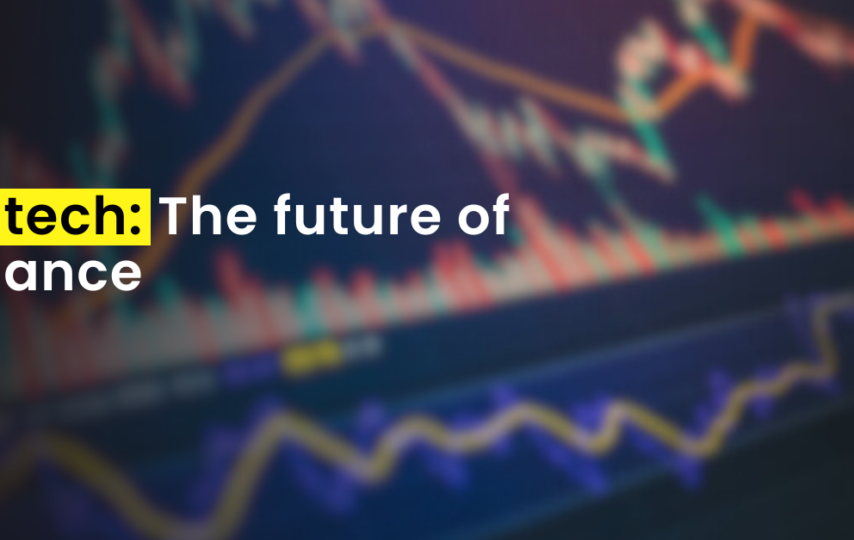The financial services sector is going through an important change. New technologies, such as artificial intelligence (AI), big data, and blockchain, are disrupting traditional financial services models and creating new opportunities for innovation. This trend is known as fintech or financial technology.
Technology improvement and automation in the financial sector are known as fintech. It encompasses a wide range of activities, from online banking and mobile payments to peer-to-peer lending and crowdfunding. Fintech companies are using technology to make financial services more accessible, affordable, and transparent.
The rise of fintech is having a major impact on the financial services industry. Traditional financial institutions are facing increased competition from fintech startups, and they are being forced to adapt their business models to keep up. Fintech is also creating new opportunities for financial inclusion, as it makes financial services more accessible to people who have traditionally been excluded from the financial system.
However, with these exciting opportunities come challenges. As fintech disrupts traditional financial systems, regulators and policymakers must keep pace with technological advancements to ensure consumer protection, data privacy, and financial stability. Striking the right balance between innovation and regulation is crucial to foster a thriving fintech ecosystem.
What is Fintech in Digital Transformation?
Digital business transformation is a strategic process in which organizations leverage digital technologies to fundamentally change their business models, operations, and customer experiences. It involves the integration of digital technologies and data-driven insights into all aspects of a business to enhance efficiency, agility, and innovation.
Digital transformation solutions encompass a wide range of technologies and strategies aimed at enabling organizations to adapt to the digital age. These solutions may include cloud computing, artificial intelligence (AI), big data analytics, the Internet of Things (IoT), blockchain, and cybersecurity measures. By embracing these technologies, businesses can optimize processes, streamline operations, improve customer experiences, and gain a competitive edge in the digital marketplace.
Fintech, short for financial technology, is a sector within the broader digital transformation landscape that focuses specifically on the use of technology to enhance financial services. Fintech companies leverage digital tools and platforms to provide innovative solutions that disrupt traditional financial institutions and processes.
The future of finance
The future of finance is undeniably intertwined with the rapid advancements of fintech. With their tireless pursuit of innovation, fintech companies are continuously creating cutting-edge technologies that hold immense potential to transform our financial interactions. Key trends on the horizon include the widespread adoption of mobile payment solutions and digital wallets, advancements in blockchain technology, the integration of artificial intelligence and machine learning, and the rise of open banking. These trends are poised to reshape the financial landscape, offering a more seamless, secure, and personalized experience in our interaction with money.
- The rise of mobile payments:
In today’s fast-paced, digital world, mobile technology has become an integral part of our daily lives. From communication to entertainment, mobile devices have revolutionized various aspects of our society. One area where mobile technology is making a significant impact is in the realm of financial services, specifically through the rise of mobile payments.
The ability to make financial transactions via a mobile device, such as a smartphone or tablet, is referred to as mobile payments. This technology has gained immense popularity in recent years, transforming the way we pay for goods and services. The convenience, security, and accessibility offered by mobile payments have positioned it as a key driver of the future of fintech.
- The development of blockchain technology :
Blockchain, a decentralized ledger technology, holds remarkable potential for transforming the storage and transfer of value. Fintech companies are at the forefront of harnessing this technology, developing innovative applications that could revolutionize financial services. By leveraging blockchain, these companies aim to enhance security and efficiency within the industry. The decentralized nature of blockchain ensures transparency, immutability, and trust, making it an ideal solution for areas such as payments, remittances, and identity verification.
Through blockchain-based applications, financial transactions can become faster, more cost-effective, and resistant to fraud. With ongoing advancements in blockchain technology, the future holds exciting possibilities for creating a more secure and efficient financial ecosystem.
- The Future of Money:
Governments and central banks worldwide are actively considering the development of Central Bank Digital Currencies (CBDCs), which are digital representations of traditional fiat currencies. CBDCs have the potential to bring forth numerous advantages, including faster and more cost-effective transactions, greater financial inclusion, and enhanced effectiveness of monetary policy implementation.
Additionally, they offer the opportunity to address illicit activities by providing improved transparency and regulatory oversight. However, as CBDCs are being conceptualized and implemented, it becomes crucial to strike the delicate balance between ensuring privacy, maintaining robust security measures, and safeguarding financial stability.
- The rise of big data:
Fintech companies are harnessing the power of big data to enhance their offerings and services. One notable application of big data is evident in how banks leverage it to identify customers who may be at risk of loan default. By analyzing vast amounts of data, including transaction history, credit scores, and spending patterns, banks can identify early warning signs and proactively engage with customers to mitigate potential risks.
This data-driven approach enables financial institutions to make informed decisions, offer personalized solutions, and reduce the overall default rate. The integration of big data analytics into fintech processes not only improves risk management but also enhances the overall customer experience, fostering a more secure and efficient financial ecosystem.
Conclusion –
In conclusion, the financial services industry is experiencing a significant transformation driven by fintech. The use of technology, such as AI, big data, and blockchain, is disrupting traditional financial models and presenting opportunities for innovation. Fintech is making financial services more accessible, affordable, and transparent, while also challenging traditional financial institutions to adapt.
The future of finance is intertwined with the advancements in fintech. Key trends on the horizon include widespread adoption of mobile payment solutions, advancements in blockchain technology, integration of AI and machine learning, and the rise of open banking. These trends are set to reshape the financial landscape and offer a more seamless, secure, and personalized experience in our financial interactions.








